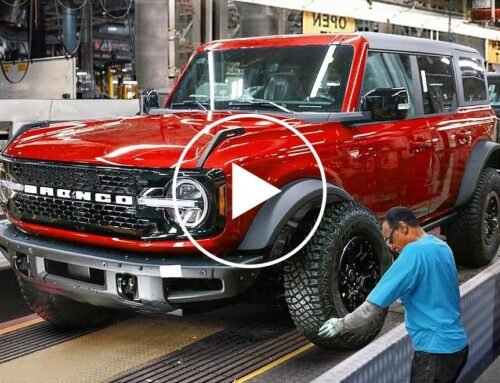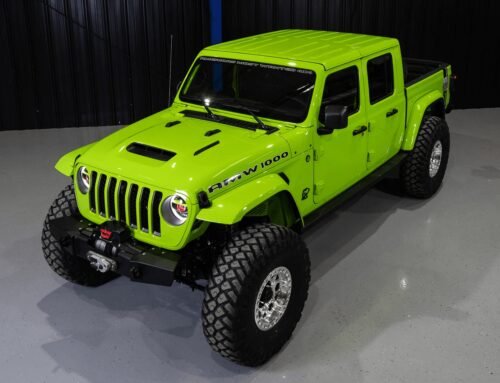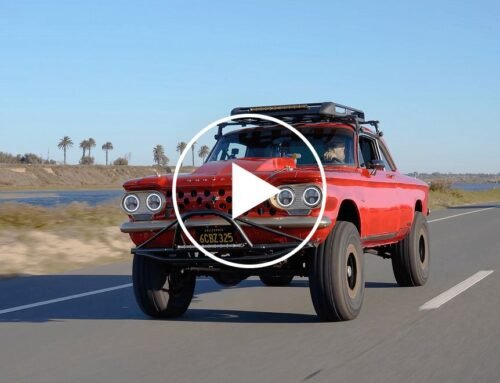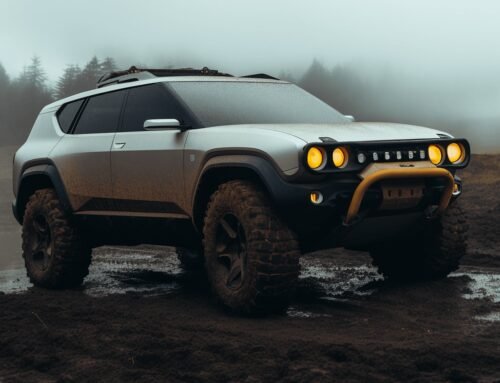This is the ultimate autonomous off-roader.
It may seem like ages ago – early January 2019, to be exact – when Hyundai revealed something quite unusual at that year’s Consumer Electronics Show (CES). The Hyundai Elevate walking vehicle concept was one of the event’s biggest and, perhaps, strangest reveals. And now the South Korean automaker is back with a follow-up vehicle. Meet the Transforming Intelligent Ground Excursion Robot Experiment, or Tiger X-1.
This completely autonomous battery-electric-powered robot is designed to carry a variety of payload types while traveling through nearly any type of tough terrain – including the moon. It’s basically the complete opposite of the family-friendly Hyundai Palisade. It was designed by the automaker’s New Horizons studio in partnership with Autodesk and Sunberg-Ferar.
Hyundai believes robotics will be a key component of future mobility, and already has experimented with its wearable Vest Exoskeleton and even AI showroom robots. In December, Hyundai purchased a $1.1 billion controlling stake in Boston Dynamics, the world’s most famous robotics company.
The Tiger X-1 is based on a modular platform architecture and has all-wheel drive. Each of the four legs has six articulation points between the chassis and wheel, allowing it to traverse a variety of rugged surfaces. It also has 360-degree locomotion, meaning the wheels can pivot independently of each other which enables greater movement, such as side-to-side, and rotation. Hyundai sees the Tiger X-1 as a mobile exploration tool capable of delivering supplies to hard to reach locations. Think natural disaster zones. It can even deliver packages to homes and businesses.
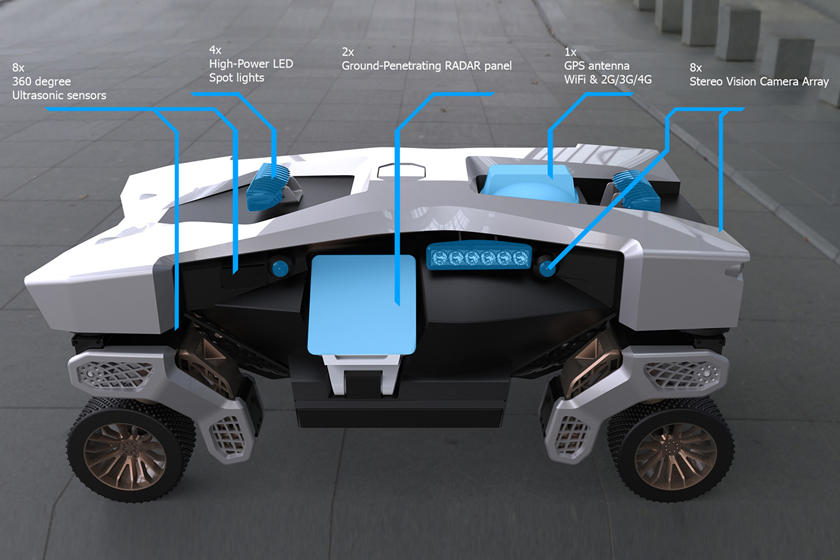 Hyundai
Hyundai
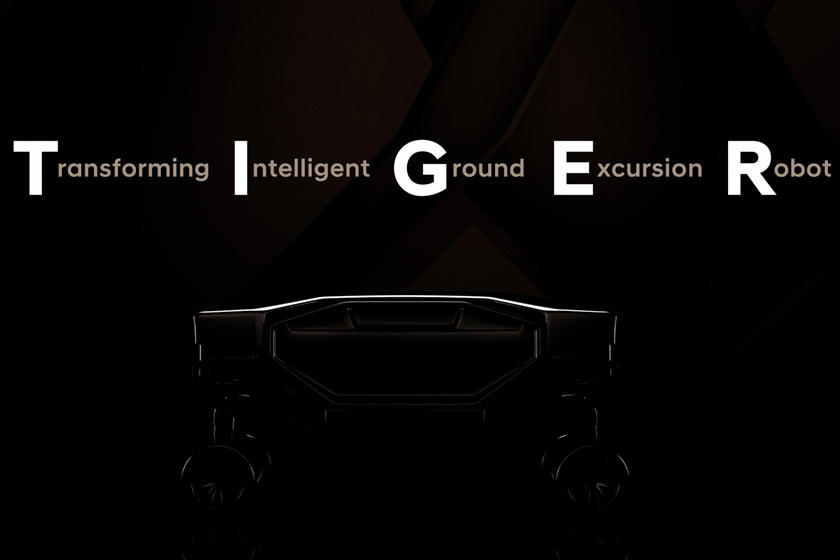 Hyundai
Hyundai


Militaries could also find it useful for surveillance missions. An unmanned aerial vehicle delivers the Tiger to just about anywhere and, if necessary, recharge its batteries. Hyundai says the biggest difference between the Tiger and the Elevate is that while both can carry human passengers, the former is uncrewed. The Tiger is also quite small, measuring just 31 inches long and 16 inches wide when folded, and weighs only 26 pounds. Its compact size and low weight make it easy to deploy.
The Tiger will likely never be sold in Hyundai dealerships, but some of its off-roading technology could potentially find its way to future road-going vehicles.


